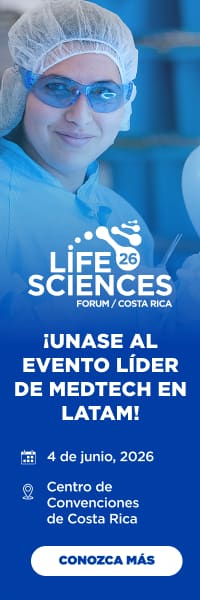The results of the tests were run at
George Mason University in the United States, which confirmed that the Costa Rican scientists’ strategy makes it possible to obtain antibodies that neutralize the pathogenic agent’s infectious capacity. These antibodies may keep the disease from progressing in patients.
“The results clearly demonstrate that the horses produced a large number of antibodies that keep the virus from entering human cells. This indicates that the medicine may be very efficient and that the number needed to treat patients will be relatively low,” said Dr. Alberto Alape Girón, a CPI-UCR researcher, microbiologist, and clinical chemist.
The sample was sent to the United States because the virologists at George Mason University have the laboratories with the bio-safety conditions to maintain the SARS-CoV-2 coronavirus in cultivated cells. The model was used to evaluate whether the equine antibody preparations could inhibit the virus’ capacity to infect cells.
“This is an enormous achievement for Costa Rica and for its institutional capacity. It is a joint, close effort with the Costa Rican Social Security Institute, with which the UCR has a broad productive relationship. These institutions were born in the same period of time and have been pillars for Costa Rica and have made it possible so both the health and educations fields have been cornerstones for development in Costa Rica. There is no doubt that both institutions have been key for configuring our social rule of law so together education and health mean universal projection and reach without turning into a business,” affirmed Dr. Carlos Araya Leandro, the UCR dean.
Important union
For Dr. Román Macaya Hayes, the CCSS executive director, the confirmation by the National Center for Biodefense and Infectious Diseases (at George Mason University) provides evidence of the human and technical capacity of the UCR and Costa Rica. Based on its own skills, accumulated knowledge, and installed technology, Costa Rica is taking a fundamental step forward in the fight against COVID-19.
“This is the first time in the history of the CCSS that an interventional research project for an investigated therapy has begun that was developed and produced in Costa Rica with the collaboration of the CCSS, the UCR, and George Mason University. This is all in the middle of a pandemic,” Dr. Macaya Hayes emphasized.
The head of the CCSS recalled that, since March 30, the CCSS and the UCR have joined in diverse cooperative areas to fight against COVID-19. One area was the creation of purified heterological antibodies based on horse plasma. Today, it is taking a fundamental step forward with the validation by George Mason University.
This center in North America has one of the highest bio-safety laboratories in the United States for testing live viruses in a setting with all the proper isolation and bio-safety conditions. This makes it possible to demonstrate that this plasma neutralized SARS-CoV-2 and that it has 100 times the strength of the convalescent plasma obtained from humans.
“Thanks to its director, Charles L. Bailey, Ph.D., and professor Aarthi Narayanan, Ph.D., we have received this encouraging news. The rigorous, profuse types of analysis run by the Center on this equine antibody preparation made it possible for us to safely move forward with enthusiasm,” Dr. Macaya said.
How did they do it?
In the last four months, the CPI-UCR researchers used various SARS-CoV-2 virus proteins to immunize six donated horses to coax these animals’ immune system to produce specific antibodies.
There was a total of four immunizations with different combinations of SARS-CoV-2 proteins. At no time was the animals’ health compromised.
Afterward, the scientists extracted blood and separated the blood cells from the liquid part. This is called blood plasma and contains the antibodies. Next, the antibodies were purified at the pharmaceutical plant at the Clodomiro Picado Institute at the University of Costa Rica. Lastly, they were used to formulate and bottle the new medication, which is an injectable liquid.
“The proteins selected to perform the immunization included the S1 protein. This is the viral protein that attaches to the recipient cell. E and M proteins were also used as a recombinant construct, along with the N nucleocapsid,” Dr. Guillermo León commented, the coordinator of the CPI-UCR Industrial Division, in previous statements.
However, that is not the only positive news. The formulations also successfully passed the sterility tests run by the Pharmaceutical Laboratory for Analysis and Assessment (Layafa-UCR). These tests found that the serum is completely safe to be applied to patients.
“The quality test run at Layafa-UCR demonstrates the absence of aerobic bacteria, fungi, and yeasts. Therefore, the conclusion may be drawn that the analyzed sample is innocuous (safe) from the microbial contamination point of view,” Dr. Jeimy Blanco Barrantes, the laboratory coordinator, indicated.
The next step is now the most important: the clinical study by the Costa Rican Social Security Institute (CCSS). It will conclusively define whether the formulations will be effective for treating COVID-19 patients.
This analysis will compare the effectiveness and clinical safety of the two equine antibody preparations within the context of treating COVID-19 patients.
“Specifically, the treatment capacity for helping patients eliminate the virus from their tissues will be evaluated. This will be by using a quantitative test performed at the Costa Rican Institute for Research on Education in Nutrition and Health (Inciensa) of the Ministry of Health. In addition, the response of the pro-inflammatory cytokines will be evaluated in patients who receive the treatment through specialized testing at the UCR Microbiology School,” Dr. Alape stated.
Currently, a group of professionals from the CCSS and the UCR School of Medicine is preparing the protocol to be used for clinical use of the new medication. This protocol will be submitted to the CCSS central Scientific Ethical Committee for evaluation and possible approval.
For its part, CPI-UCR will focus on optimizing the production of the new pharmaceutical to reduce the costs and on maximizing how the process performs.
According to the CCSS head, it has been demonstrated again that Costa Rica has access to the highest scientific faculty to defend the population against a global threat such as SARS-CoV-2.
Currently, two other strategies are being developed as part of treating patients with COVID-19.
The first is convalescent plasma where the plasma donated by a previously recovered patient is to be sent to another patient who is facing the disease. The second is, along with Clodomiro Picado at the UCR, to seek the standardized producti


